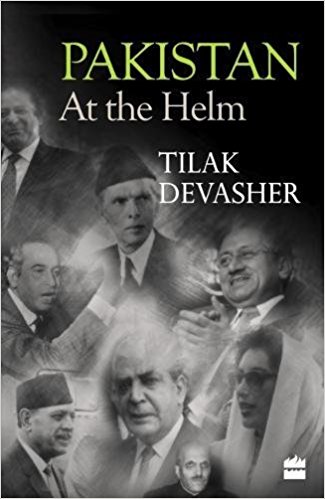In 2017, Tilak Devasher had published a well-analysed book on Pakistan titled Pakistan: Courting the Abyss. It not only analysed the contemporary problems of Pakistan but also attempted a forecast on crucial issues facing the country—Water, Education and Population. It was a refreshing account by an Indian with less of an ideological baggage in looking at Pakistan. His second book Pakistan at the Helm raised an expectation primarily due to the success of his first book. In his own words, the book is an ‘analytical collection of anecdotes, vignettes and incidents selected from Pakistan’s history of the last seven decades.’ From Jinnah to Nawaz, the book explores the men and women who governed Pakistan from 1947 to 2017.
Devasher’s plan to construct a narrative based on anecdotes and incidents makes interesting observations, resulting in the book being an exciting read. At the same time, multiple anecdotes and reference to individual events within chapters without a common thread, also lets the narration hanging loose and at times even on bordering discontinuity within chapters and between paragraphs.
While his first book was a brilliant construction of contemporary Pakistan through issues and challenges, the second one however interesting, still borders on intellectual gossip of individuals who ruled Pakistan, of course based on facts and events.
On the positive side, Devasher’s new book is an easy read. His anecdotes and references provide snapshots of individuals who ruled the country, their mental makeup while making significant decisions that would make or unmake Pakistan. One could easily identify three threads in Devasher’s narrative of Pakistan’s leaders from Jinnah to Nawaz Sharif. First, when they came to power or became prominent, they came with a bang, but invariably their political and personal ends were disasters. Second, Devasher captures the sentiments of these leaders towards their end, questioning what they have done earlier. And finally, one could see a pattern in protégées turning against their erstwhile mentors, and worse, targeting them, thus leading to their political and personal demise. For Devasher, the anecdotes highlight different trends: a ‘political trend’ looking at a ‘reversion to the pre-British structures of governance’; ‘instead of the rule of law, there was the law of ruler’; and a ‘political polarization, that is increasingly becoming vicious.’

